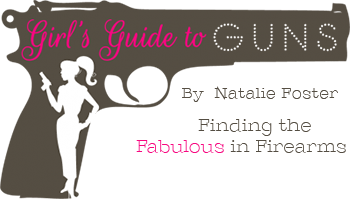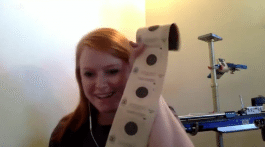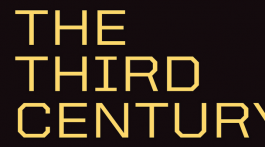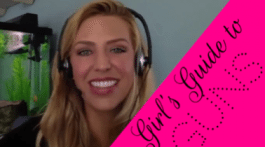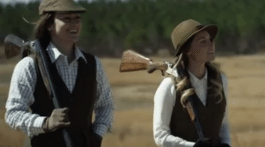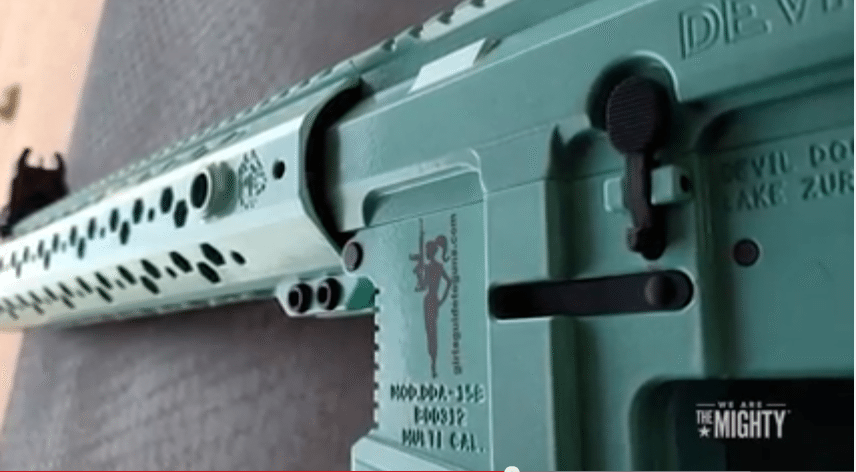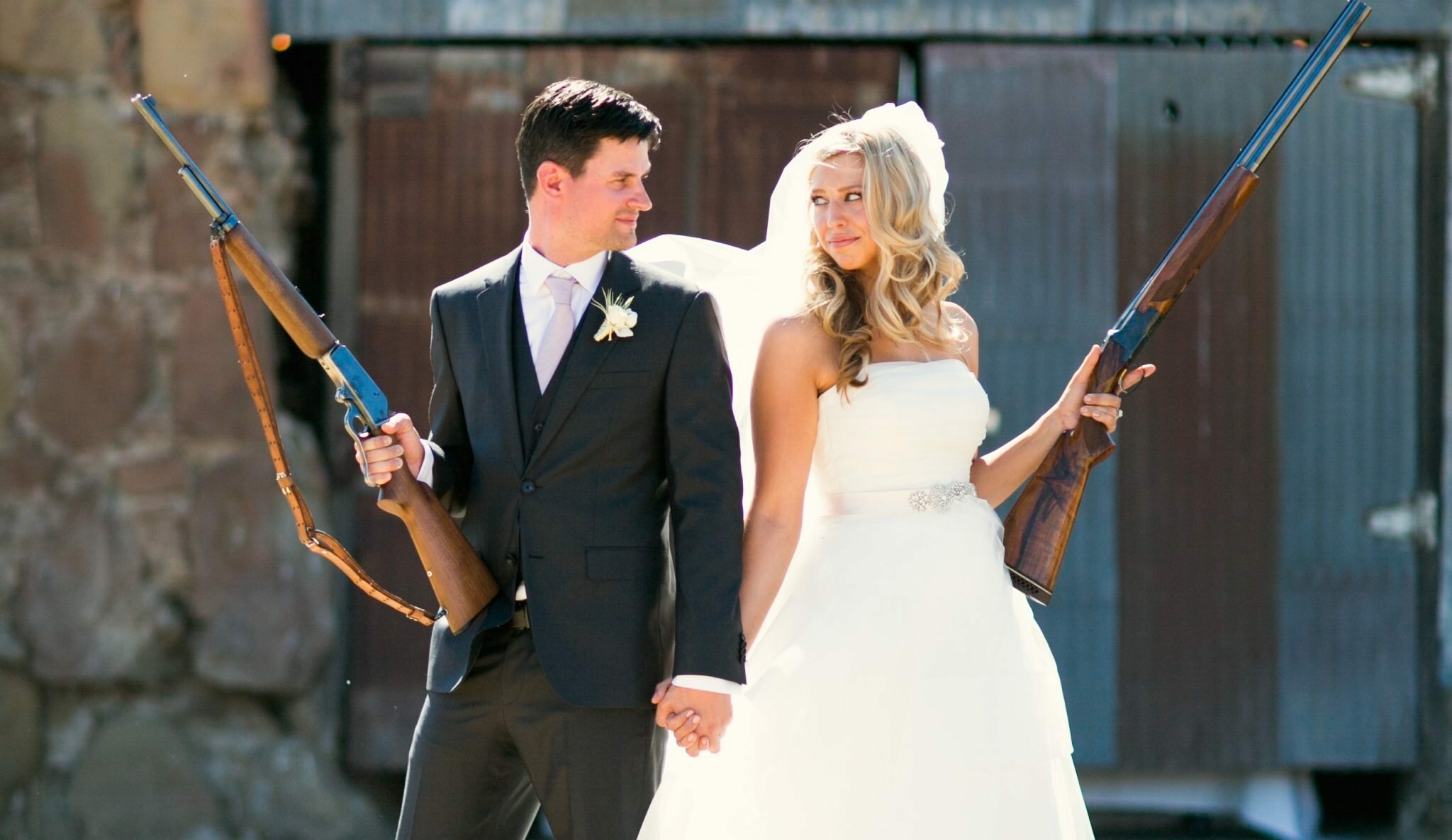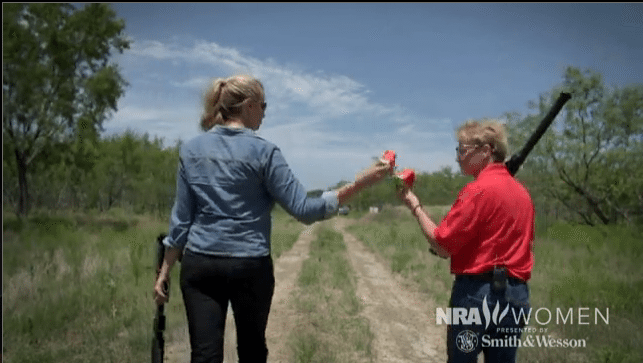We love Barnes Bullets here at Girl’s Guide not only because of their fantastic products, but because they know how to take care of the ladies. Check out their website and you’ll notice several categories set aside just for us. I got a chance to talk with Jessica Brooks, head of Product Management and Marketing and Advertising at Barnes Bullets, to learn a bit about ammo and what it’s like to be female in the firearms industry.
Natalie Foster: Tell me a bit about the history of the company and your involvement in it.
Jessica Brooks: Barnes Bullets was founded back in 1932 by Fred Barnes. He supplied custom bullets that he actually made in his basement to hunters that wanted to buy a premium bullet. So Barnes is currently the oldest bullet manufacturer in the country. My parents, Randy and Coni Brooks bought the company back in 1974 and back then it was in Colorado. They moved it to Utah and we’ve got a workforce just full of family. My sister and I grew up in the business and did just about everything from production to office work to ballistics lab work. We just kind of went where we were needed from the time we were really young – 3 and 4 years old. I really come from the roots of the company. I’ve worked in just about every department there is and so now I’m doing product management and Marketing and Advertising.
NF: Very cool. Your position as a female in the firearms industry is pretty unique, isn’t it?
JB: Yeah, it is really unique. There aren’t a lot of women in the hunting and shooting industry. There are more now than there ever have been but back in the ‘70s when my parents purchased the company there weren’t many. If there were, they were usually assisting their husbands and did the office work. I think the unique thing about our business is that my dad is still the president of the company, and my mom is the sales manager. My dad put us in the spotlight a lot. When we were young we hunted big game at an early age. We were always in the field doing something and my mom traveled all over the world in those early days and she hunted, too. The women in our company have a lot of respect not only from our customers but others in the industry, as well, for the amount of hunting and shooting that we do.
NF: It seems like you guys are really leading the charge for women in the hunting and shooting industry, kind of by accident.
JB: I think my mom would be seen that way because she gained a really fantastic reputation early on as this little woman that shoots big guns and hunts dangerous animals. I was hunting brown bear by the age of 14. My dad and I went to Alaska and it was a backpack hunt, we had everything on our backs and we were out in the bush for two weeks. We ate freeze dried food and we liked it that way. I think people appreciate the fact that we’ve been there and done that and we can relate to our customers. We hunt deer in our backyard here in Utah and we hunt dangerous game in Africa and we kind of do and see it all. And we enjoy it. We’re not just involved in making the products, we’re involved in using the products. I’m a reloader and I have been from the time I was very young. We’re involved in every aspect of the business and I think people respect that about our family.
NF: What percentage of Barnes Bullets employees is female?
JB: I think about 15%-20% of our workforce are women and some of those ladies are hunters.
NF: Many of our readers are brand new shooters and they are just getting used to guns, so hunting is a whole different ball game. I haven’t hunted yet, either. It’s so foreign to me, other than watching my dad and brothers do it while I was growing up, as it is to many people I know. Hunting is often vilified by media and pop culture, but I’m not sure that’s really fair. Can you translate to someone who has never done it what you enjoy about hunting – what it means to you?
JB: Well first of all I think it’s important to say that I realize that hunting isn’t for everyone. I would never want to push it on someone who wasn’t interested in it or the experience. And, you know, I don’t ever want to be disrespectful about the animals in the experience of hunting. I think that’s really important because being out in nature is a great feeling in and of itself. And whether you’re hunting or mountain biking or kayaking or whatever it is that you’re doing, I think it’s great that everyone just goes out and enjoys the outdoors. The hunting experience in itself is different for everyone. You have people that are strictly trophy hunters and then you have people that hunt for subsistence and I think I’m somewhere in the middle. I enjoy hunting trophy animals and at the same time I also eat the meat. We have a freezer full of deer and elk. I appreciate the sporting aspect of it and the challenge that a hunt is, and then also appreciate the sacrifice that the animal is making to provide subsistence and food for my family. I think probably there is another aspect of it because of the way I was raised and the business that I’m in – I enjoy the technical aspect of it. After an animal is taken, the first thing I do is walk up and I start doing the autopsy. I want to see how the bullet performed. I want to know that the product I used took the animal in a humane way. I mean, I don’t want to sound corny, but all of those things are very important to me. I think that’s why my family – my dad from the early years – has put tremendous resources and time and energy developing products that perform well because a quick, humane kill is important not only for the animal’s sake, but for the reputation of hunting as a whole.
NF: As I said, I’m not a hunter, but from some of the research I’ve done, I understand that this humane hunting you’re talking about is very important for the different species in ways people wouldn’t normally expect. For instance, keeping the herd down protects it from overpopulation that can lead to starvation or serious illness, which could wipe out entire herds, right?
JB: Absolutely. I think that’s really important – herd management. For example, there are people that believe it’s illegal to hunt elephants. It is illegal in some countries, particularly in northern Africa, but in the south as long as you have the proper permits in place you are allowed to do so. In fact, I submit that it’s crucial to control the elephant herds because while they’re a very majestic and beautiful animal, they are also very destructive. The natives graineries are raided by elephants and natives are not allowed to shoot the elephants so they can’t protect their food stores. So African countries benefit greatly from elephant management. Hunters want to pay to go and hunt those animals and it’s very expensive. They can put that money into the economy and into the villages and the food stores and help them manage their livelihood. When an elephant goes in and destroys a village’s grainery, that’s a matter of life and death for that village. So hunting is a great source of income not only for us domestically but internationally and those funds can be put toward conservation. In fact, the bulk of the conservation that happens in the United States is not based on monies from organizations like Greenpeace and The Humane Society. The bulk of the conservation efforts are funded by hunters. We [hunters] fund species that are not huntable. There’s a turtle here in the state of Utah – all of the money for the management of this turtle, this non-huntable species, comes from hunters spending money on licenses at the Division of Wildlife Resources. Hunters are not just hunters. We’re conservationists as well.
NF: I noticed in your promotional video, and as you mentioned before, that your company manufactures bullets to make the kill as quick and painless as possible for the animal.
JB: Yes, exactly. That’s why I say that my dad has worked tirelessly – long and hard hours to develop products that accomplish just that. We do it out of respect for the animal and to the respect of our sport as well. We’re all about ethics and that’s why we build products that are performance based – because we are an ethical company.
NF: I’m just learning about bullets and the intricacies of manufacturing them. It seems like there is so much to know – tons of information out there, which I never would have expected. I just thought ammunition consisted of a metal projectile with some gunpowder behind it. I had no idea how much work goes in to making a bullet. So what types of bullets does Barnes manufacture? Just rifle/hunting ammo, or is there more to it?
JB: We do handgun bullets and ammunition in addition to the hunting bullets. For many years Barnes Bullets only made premium hunting bullets. That was all that we produced. However, this year we’ve introduced match bullets for people to shoot at the range in competition and in practice. We also have some personal defense bullets as well. They perform in different ways, some of them hold their weight and hold together, others are frangible for use inside a home.
NF: Explain a frangible bullet.
JB: Frangible is just that – it breaks apart. So for example, if someone breaks in to your home and you don’t want to be worried about a bullet penetrating through a wall into the next bedroom, then you would use a frangible product that would break up before it penetrated through the wall.
NF: This world really is vast, isn’t it?
JB: So true. You know, the more you learn, you realize the less you know. Myself included. Ballistics is a fascinating field.
NF: So what is the most important thing for a new shooter to know about bullets?
JB: I think the most important thing the new shooter can do is familiarize themselves with the firearm they’re using in terms of safety and function and how that firearm performs. If you decide on a particular application that you want to seek – that you want to be involved in first – then obviously it’s important to do research to find out the firearm and ammunition that is best suited for your application, whether that’s hunting or target shooting or whatever. If you decide to start shooting a handgun and you want to go to the range, find out the firearms that are available for a woman because we are built differently than men. For example, like me, there are some models of handguns that just don’t feel comfortable to me and I don’t care to shoot because of my smaller hands. So do your research, ask question at the store you visit whether that’s a Cabela’s or your local gun store. Handle the firearms and see what feels comfortable. It’s important to shoot a firearm that’s comfortable to you and that fits. There are boyfriends that want to get their girlfriends into shooting so they hand them their big full size Remington 700 and this girl is 5’0” and 105 lbs and she can’t handle the firearm – it’s not gonna be a pleasant experience for her. It’s important for the firearm to fit the shooter. And then understand and research the ammunition you’re shooting. If you’re just shooting targets, there are certain types of ammunition that are more expensive than others and it might not be necessary. Another example is if you’re hunting big game and you purchase the cheapest ammunition you can find – full metal jacket ammunition – that’s not doing good research and you’re doing a disservice more to the animal than yourself. For hunting it’s important to match the performance of the ammunition to the game that you’re seeking. You wouldn’t use a frangible bullet if you were hunting dangerous game. So I think the most important things for a new shooter are finding firearms that fit you and matching up the ammunition to the application. I think those are really important things to consider for new shooters.
NF: Are there any resources for matching that ammunition to the application?
JB: Everybody’s got an opinion, so I think gathering the most information you possibly can is best. For example, if you like to hunt with the automatic rifles, the ARs, there’s a forum called www.AR15.com. Those people that get on that forum eat, sleep, drink, live, breathe ARs. Go on the forums and listen to what they have to say. Some of what they say might fit you. And, of course, go visit the local sporting goods stores so you can handle the firearm and get the guy behind the counter’s opinion. The more information you can seek out, the more beneficial it is to you and your experience.
NF: What advice do you have for women who are interested in the shooting sports but haven’t ever picked up a gun before?
JB: First of all I would say that firearms are something that they don’t need to be afraid of. The great thing about women is that when we get into the shooting sports it’s different from a man because a man has preconceived notions. They think they’re supposed to know how to do this and they’re supposed to be the best where a woman doesn’t. In fact, you’ll hear my dad say often that the best shooters he’s ever been around are women because women are comfortable and there’s no pressure. They
don’t feel the pressure that men do. In my opinion, women already have a leg up on the guys in that regard. What the guys have up on the women, I think, is confidence. If a woman goes into this not afraid to ask questions and realizing that they’re not expected to know everything and just to feel comfortable and relaxed, I think they’re going to have a really great experience. The other thing is, when a woman is looking to get into shooting and they are around other women shooters, they are much more comfortable. Sometimes men tend to be overbearing and put pressure on them that makes them shy away from it, but there are great women’s programs out there like Women in the Outdoors, for instance. Women can go to these week-long seminars and get experience fly fishing and cooking and shooting and they are around other women and there is a camaraderie there and they feel a lot more comfortable. My mom and I went down to a shooting school in Arizona called Gun Sight and I took a long range shooting course because I think there are always things we can learn from other people. I also took a personal defense course. They have courses designed, and we’re seeing this more and more, just for women. Women shooters are the fastest growing demographic in our industry, so more and more shooting schools are tailoring classes toward women. I would highly recommend these courses. I mean, a two-day personal defense course would make you very familiar with your firearm and tactics. And I’ll tell ya, the confidence you gain from just a shooting course is unbelievable. I would encourage women to look for those kinds of opportunities.
Thanks, Jessica, for all of the helpful and enlightening information about ammunition and hunting. And thanks to your family for pioneering the path for women in the firearms industry!
